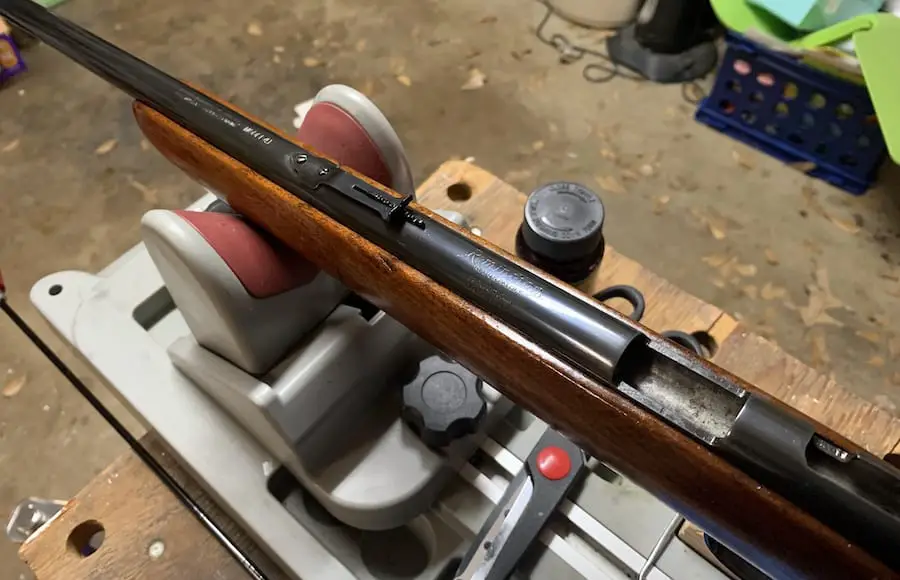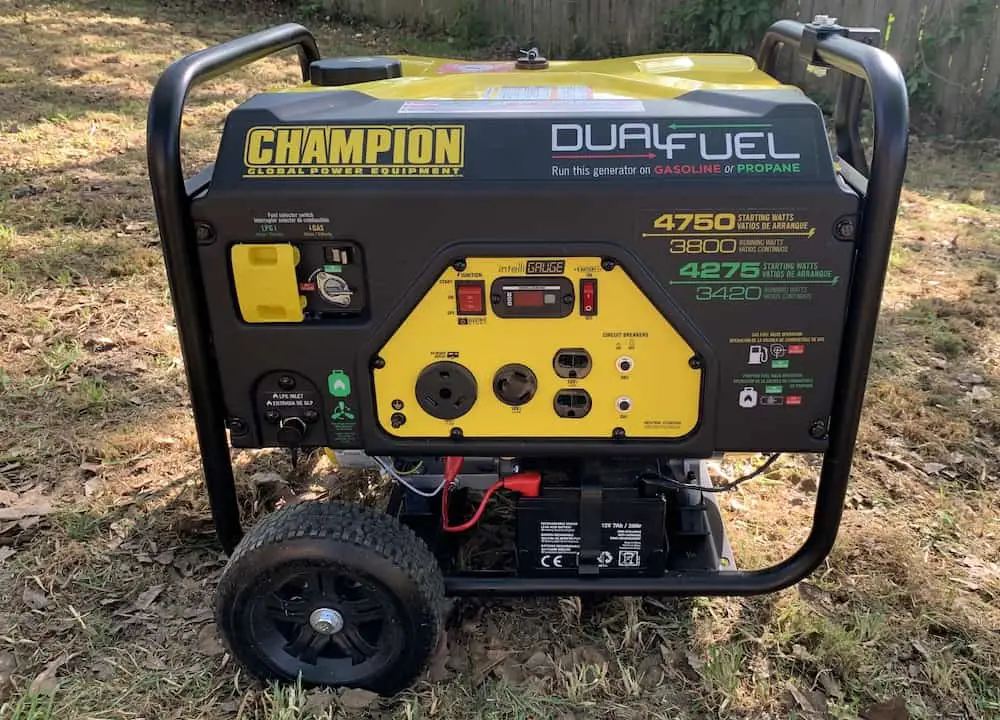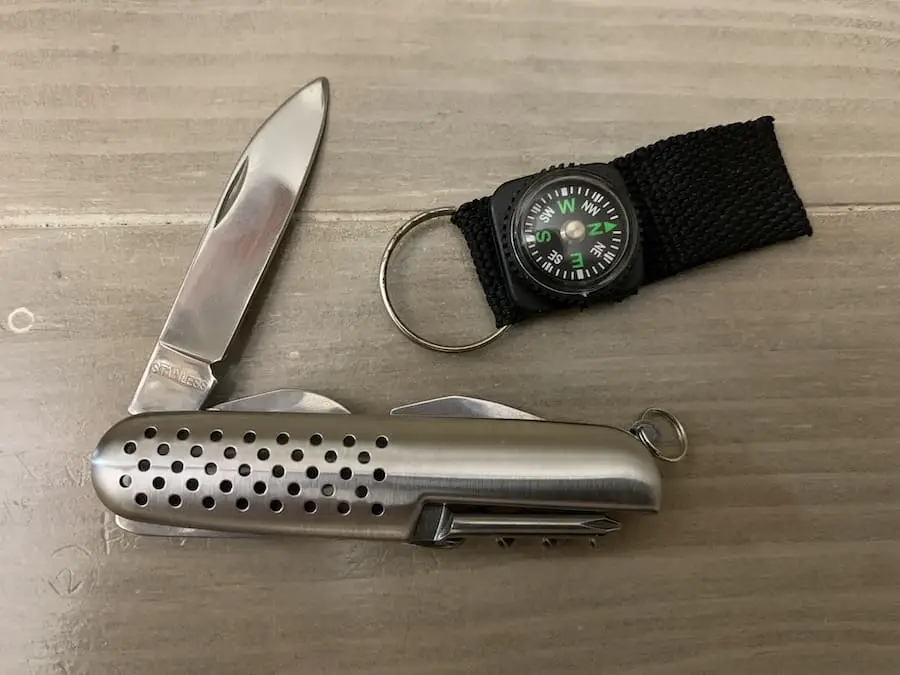Mistakes Preppers Make and How to Avoid Them

Being a prepper involves a big commitment of both time and resources. There are so many aspects to being prepared that it is easy to make mistakes.
The most common mistakes that preppers make relate to the following:
- Prepping Fundamentals
- Bugging Out or Bugging In
- Storage
- Defense
- Food
- Gear
- Mindset
- Personal Fitness
Below is a comprehensive list of mistakes that both new and experienced preppers make. Avoiding these mistakes will help you save time, money, and frustration. It could also save your life.
Fundamental Mistakes Preppers Make
This first section involves mistakes that could derail everything else that a prepper does. They are most commonly made by new preppers, but even experienced preppers can fall into some of these traps.
Just Buying a Kit
One of the biggest mistakes that some people make is thinking that they are prepared simply because they bought a “survival kit“. This applies to the general population but can apply to new preppers as well.
No kit, regardless of its size or how expensive it is, can fully prepare someone for the wide range of scenarios that they may experience. Being a prepper is also about more than just buying gear. Mindset and skills are major components that you won’t find in any kit.
Relying on Supplies While Neglecting Skills
One of the most common mistakes that preppers make is thinking that gear is a substitute for learning and practicing skills. Food storage will eventually run out and gear could break. When those things happen, having resourcefulness, creativity, and skills will help you survive.
Only Preparing for TEOTWAWKI
Ah, TEOTWAWKI (The End of the World as We Know It)…It inspires mental images of the zombie apocalypse, Yellowstone’s supervolcano blowing up, and giant meteors flattening major cities. Fortunately, most of these situations aren’t too likely. However, those unlikely situations are the ones many preppers are focusing on.
While it is possible that a world-wide cataclysm could occur in our lifetime, there are other, much smaller, events that we should prepare for first. We are far more likely to fall victim to events like wildfires, hurricanes, and even personal economic hardships. These are the events most of our prepping efforts should be focused on.
Not Collaborating
One of the biggest mistakes that many preppers make is having a “lone wolf” mentality and not collaborating with others. No one knows everything about everything. A lone wolf prepper loses out on knowledge that others may have.
Possibly the biggest problem with having a lone wolf mentality is that those who survive bad circumstances usually do so with the help of others. Being part of a group will give you a better chance of survival since you can look out for one another.
Click here to see my article, How to Build a Survival Group.
Not Involving Your Family
If you have a family, they have to be involved in your preparedness plans. If they aren’t then you run the risk of alienating yourself from them. Also, when an emergency does happen, you will be the only one who knows what to do. This confusion would likely unravel any plans that you made.
Not Having a Survival Library
One important thing that many preppers overlook is having a comprehensive survival library. This library should be in print since access to ebooks may become compromised in a grid down or survival situation.
A good survival library should contain books with basic information such as wilderness survival, food storage, defense, and water purification. However, armorer’s manuals, home improvement guides (electrical, plumbing, etc.), and other books that promote self-sufficiency should be included as well.
Preparing for a Specific Event
One of the most fundamental mistakes that many preppers make is preparing for only one type of event. If you have ever seen the show Doomsday Preppers, it is a perfect illustration of this. Most of the people on the show are preparing for something very specific, like nuclear war or societal collapse.
Only preparing for one specific event could leave you vulnerable if a different type of event takes place. No one knows what may happen in the future. We may take an educated guess, but it is important to not pigeonhole ourselves.
Taking a holistic approach to prepping is a much better choice. This is where you focus on being able to meet the basic needs of your family, such as food, water, shelter, hygiene, defense, warmth, etc. Being well-rounded in all areas of preparedness will get you ready for a wide range of circumstances.
Not Preparing for Likely Events

A lot of preppers make the mistake of only preparing for TEOTWAWKI-type situations and ignore the ones that are far more likely to happen. Things such as severe weather, personal injury, and even job loss are far more likely to happen to someone in their lifetime.
Knowing what events are most likely to happen to you and preparing for them is a smart move. Some things, like injury or job loss, are common to pretty much everyone. Others, such as hurricanes and blizzards, depend on where you live.
Neglecting Emergency Documents
If you had to evacuate your home or it is destroyed having essential documents would help you get back on your feet. Unfortunately, many people including preppers, overlook this.
Documents such as insurance policies (of all types), passports, and even important family pictures should be stored safely and so that you can get to them if you need to get out quickly. Having a USB drive as well as storing backups on cloud-based storage is smart as well.
*Note: Yes, I know that cloud-based storage would go down if a long-term grid-down scenario took place. However, it would still be intact and useful throughout many other possible situations.
Not Having a Will
One of the worst things that I can think of is not being there to help my family if something terrible happened. Having a will is important for everyone, especially preppers.
While wills are usually thought of as documents that split belongings between heirs, they can serve other functions as well. For a prepper a will can also be used to provide instructions on what to do with and how to use emergency supplies.
Neglecting Comfort
Many preppers devise their plans in a very Spartan manner, meaning that everything is utilitarian, and in some cases, built for combat. Doing this may prepare people to defend themselves or not starve to death, but it completely ignores the psychological aspects of survival.
Items such as games, soaps, and even comfort foods are extremely important for morale. For many, coffee will be an important lifeline. For me, being able to drink Cokes is a big deal. Storing items and foods that bring a little joy to life could make a bad situation a lot less horrible.
Overlooking Pets, Children, and the Elderly

Many preppers overlook the needs of their pets, children, and elderly family members. Each of these groups has its own unique needs that may be very different from a healthy adult.
In addition to stocking food and medicine, make sure that you consider any limitations they may have when developing bug out or defensive plans. If you have a young child, take a look at my article, Prepping with a Baby: The Complete Guide, by clicking here.
Not Knowing First Aid
First aid is an important skill for every person to know, whether they are a prepper or not. Knowing how to deal with things like simple cuts or even heart attacks can be both helpful and life-saving. Unfortunately, this is one area that preppers commonly overlook.
There are many groups that offer first aid and CPR training, including the Red Cross. You can see what courses they are offering in your area by clicking here.
Not Having a Waste Management Plan
If the poop hits the fan, then you need to know what to do with your, well…poop. Human waste and garbage can quickly become breeding grounds for all sorts of bacteria and viruses. Exposure to these can cause illness and even death.
Having a waste management plan in case water and trash utilities shut down will reduce the chances of you and your loved ones contracting a disease. Knowing ahead of time what you will do with your waste and having any necessary supplies is important for any prepper.
Not Keeping Cash On Hand
Most people use their credit or debit card when purchasing groceries, gas, and other daily essentials. Because of this, the need to carry cash has become almost non-existent. However, for a prepper, this is not the case.
Widespread power outages or even minor internet problems can shut down electronic payment systems. Having cash with you as well as keeping some stored safely at home will allow you to have at least some money during an emergency. In addition, paying for certain items with cash (food storage, ammunition, etc.) can help preserve your privacy.
Forgetting Barter Items
No matter how bad things get, there will always be some form of economy. Having barter items such as toilet paper and soap will put you in a position where you can trade for items that you need. Low-cost comfort and luxury items are some of the best choices for this.
Ignoring Climate
Another common mistake that preppers make, especially when preparing kits, is ignoring climate and seasonal weather changes. Here is an example:
Prepper Bob makes a car kit in June, complete with a change of clothes. In December, he needs to use the change of clothes in the kit because he got wet changing a tire. Unfortunately, all he packed in the kit was shorts and a short-sleeve shirt. Now Bob is freezing cold while looking like an extra on the set of Miami Vice.
When making kits, be sure to rotate clothing so that you have what you need, regardless of the time of year. If you live in an area where the temperature varies widely, even within the same season, pack both warm and cold weather clothing.
Mistakes Preppers Make Bugging In or Bugging Out
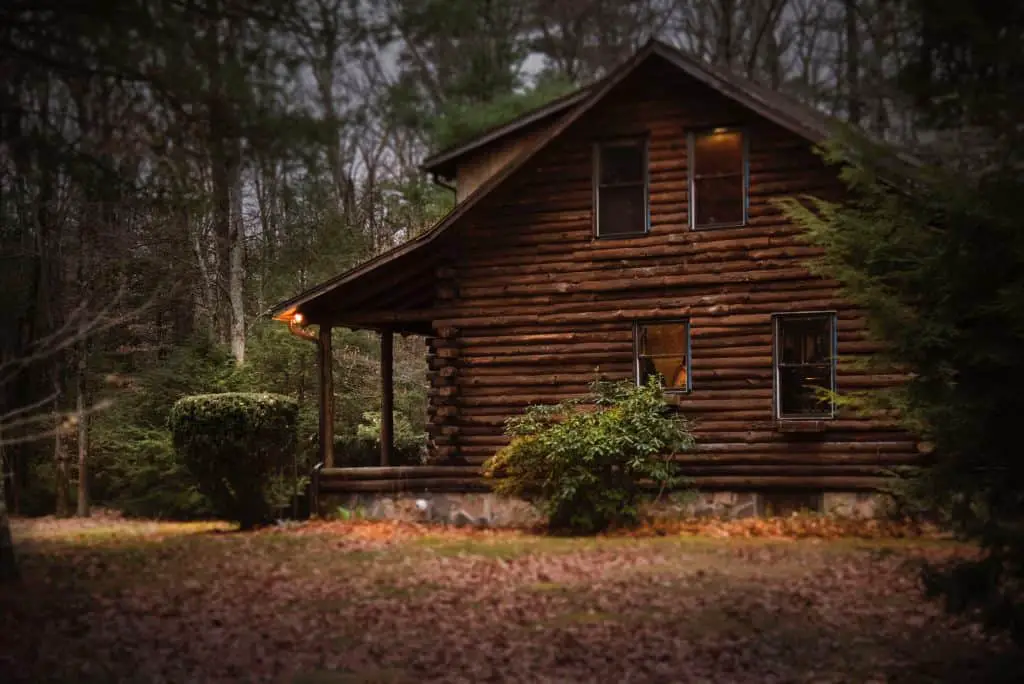
One of the most important parts of being a prepper is having plans for both bugging in and bugging out. Below are some common mistakes that preppers make when developing these plans.
*For more information about bugging out, check out my article, When to Bug Out: Know When to Go and How to Get There by clicking here.
Not Planning for Bugging In and Bugging Out
Many preppers fit in one extreme or the other. Some are determined to bug out and live some action movie fantasy, while others are convinced that nothing will be able to force them to leave their home.
I, personally, plan to bug in as much as possible. However, I realize that this may not be possible. Having plans for bugging in and bugging out (and knowing when to do both) will allow you to respond appropriately to as many situations as possible. This will give you a better chance of keeping you and your loved ones safe.
Not Leaving In Time
Leaving your home can be a hard thing to do. The decision is even harder if you are being pressured by your job to stay put. However, staying too long could make leaving much harder or even impossible later on.
Waiting too long to bug out could force you to evacuate along with everyone else, which will slow you down. It could also prevent you from leaving at all if roads become impassable or if law enforcement or the military set up roadblocks.
Not Planning a Bug Out Route
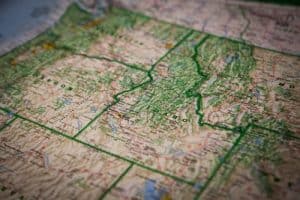
Bugging out can be very challenging, especially if you don’t know where you are going. While you may know how to get to your bug out location, your original route may become compromised. Having multiple backup routes mapped out (and practiced) will prevent you from getting caught off guard and unable to reach your destination.
Not Practicing Bug Out Procedures
Bugging out is a complicated operation. You have to make sure that you load up everyone and all of your supplies. Leaving certain items, such as weapons and water filters, could be disastrous.
Make sure that your family knows what their role is in bug out procedures. They should know what they are supposed to load and what to do if they are separated from the rest of the family when an emergency happens. This should be practiced multiple times, just like a fire drill in school
Heavy Containers for Bug Out
If you have 50,000 rounds of ammunition in a plastic tote, please make a video of you trying it to load it into your car. Unless you are a professional bodybuilder or NFL linebacker, it will probably be hilarious.
Avoid overloading containers that you will use to transport items when bugging out. Although you will need to make more trips while loading, smaller and lighter containers are much better choices than trying to load big and heavy items into your vehicle.
Storage Mistakes Preppers Make

Being able to correctly store food, water, and gear is one of the most important skills for a prepper to have. Here are some mistakes that preppers make when storing food, water, and other essentials.
Not Considering Available Storage Space
If you are a prepper, you need to know how much storage space you have at your disposal. This will determine how much food, water, and gear you can store as well as the types of containers that you will use.
For example, it wouldn’t make sense for me to buy a 250-gallon water tank because I don’t have anywhere to put it. Because of this, I rely on multiple 7-gallon Aquatainers that I can store in different places in my house. A rainwater harvesting system would be a good way for me to store larger quantities of water.
If you find that you are short on space, buying a set of shelves may help out. Also, don’t forget to use your wall space. Wall-mounted hooks and shelves can store supplies and gear or just get other things out of the way to make storing preps easier.
Inaccurate Calculation of Supply Needs
Another storage-related mistake that preppers make is not making good calculations of their supply needs. This could cause you to run out of food or other essentials (toilet paper) much faster than you intend to.
Many people trust the serving sizes listed on food packages, particularly those on freeze-dried survival foods. The problem with this is that those servings rarely have the calories and nutrition that your body needs.
Instead of trusting the package, buy a batch for testing purposes, cook it up, and eat it. This, along with the nutrition information provided, will give you a better idea of how much you will need.
Not Taking Inventory
Another area that preppers fall short is failing to take inventory of their supplies. This includes knowing what you have as well as when it will expire, if applicable. Keeping up with your inventory will allow you to know what you have and make the best decisions when you go to buy more supplies.
Ignoring Basic Essentials

Most preppers tend to focus on three things: food, water, and defense. However, other items, such as toilet paper, soap, and cleaning supplies are just as important. While I am writing this, we are seeing that first-hand as we deal with panic-induced toilet paper and cleaning supply shortages.
Basic essentials such as those help you stay healthy by limiting your contact with harmful microorganisms. They also help keep morale higher and make bad situations less miserable.
Using Your Stored Supplies
At the beginning of the Coronavirus quarantine, I thought it was funny that people were complaining about eating all of their quarantine snacks before it even started. Preppers tend to make the mistake of consuming their preps also.
To avoid using your stored supplies, keep them separate from those that are for everyday use. For example, store some non-perishable food in a bedroom closet instead of the pantry. You won’t be as likely to eat it if it isn’t with the rest of your food. Better yet, stick it under your bed. This is best done with food with a long shelf life, like Mountain House meals.
Storing Items Improperly
One of the biggest mistakes that preppers make after purchasing food and other supplies is storing them improperly. Heat, moisture, and other environmental factors ruin preps as effectively as an angry mob.
Avoid storing food anywhere that isn’t climate-controlled. This means no attics or garages. Tools and weapons should be stored so that they won’t rust.
Storing Everything in One Place
Have you ever heard the phrase, “Don’t put all of your eggs in one basket”? Well, it applies to prepping also. While it would be nice to have supplies spread in different caches all over the countryside, for many this isn’t practical.
However, there are ways that you can spread out your preps to avoid losing them due to a fire, theft, or any number of reasons. If you have the money, renting a storage unit is a viable option for gear that isn’t too sensitive to the elements. Even storing some items at a trusted relative’s house is better than nothing.
Even if you are able to spread out preps in locations away from your home, it is still a good idea to keep certain items like food and weapons hidden in different locations inside your home. This will make it harder for thieves to wipe you out completely.
Not Storing Water
Many preppers do a good job storing food but they completely forget to store water. Even if you have a good water purification system, such as a Berkey, having a backup supply of water is still a good idea.
Water utilities may go out and nearby natural sources may become contaminated beyond what you would want to attempt to purify. Those water sources could also become inaccessible or dry out.
Storing Water in One-Gallon Jugs
One mistake that I made when I started prepping was relying on store-bought one-gallon jugs for my backup water supply. The problem with these is that they are fragile and burst easily. I have since purchased some Reliance Aquatainers that I use for my family’s water storage.
For more information about how preppers can store water, read my article How Do Preppers Store Water? Storage Ideas and Solutions by clicking here.
Defensive Mistakes Preppers Make
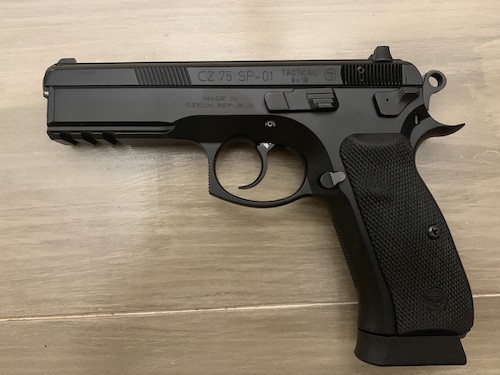
Most preppers love guns and almost anything to do with the defensive aspect of preparedness. Unfortunately, it is also an area where many preppers make mistakes, many of which could get them killed. Here are some mistakes that preppers make that relate to guns and defense.
Telling Others You’re a Prepper
The most common defensive mistake that preppers make is being loud-mouthed preppers. We tend to enjoy and take pride in our preps, and it is human nature to talk about what we are interested in. While this usually isn’t a problem in everyday life, it could lead to big problems later on.
One problem that comes from loose lips is that people will remember you talking about being a prepper when an emergency happens. Many people jokingly say “I’m coming to your house if anything bad ever happens”. They don’t realize that there may be some truth to their statement. Helping people is good and should be done if possible, but your preps can’t feed everyone you know.
Another problem with talking about your preps is that you may wind up on the radar of your local law enforcement. Even if you aren’t doing anything illegal, knowing that you are a prepper may open you up to more scrutiny than normal. This is especially true in areas where preppers are seen as “fringe” or “right-wing”.
Over-Reliance on Firearms
Many preppers make the mistake of thinking that since they have a firearm (or 30 firearms) that they are capable of fending off all manner of threats. They focus so much on the tool that they ignore developing a defensive strategy for their property and family.
Not Practicing Survival Techniques
This one can fit in other categories as well, but many preppers focus on acquiring weapons, food, and other items while neglecting basic survival skills. Having basic urban and wilderness survival skills will allow you to function even if you are separated from your stuff, including weapons.
Not Learning Martial Arts
Most preppers depend on firearms to be able to defend themselves and their loved ones. What happens though if you have to defend yourself, don’t have a weapon, and can’t retreat? Knowing some form of martial arts, particularly something like Krav Maga or Jiu-Jitsu would be very valuable.
Not Keeping Skills Fresh
Shooting and other forms of self defense require practice and conditioning to stay effective. Don’t be the person that buys a gun, practices before their LTC class, passes their qualification, and never picks up the gun again. If you have studied martial arts remain active and continue to practice with supervision and qualified partners.
Having a Rambo Complex
One very big mistake that some preppers make is imagining that they are some sort of Rambo-esque action hero. They falsely believe that they can pick apart dozens of intruders or even an entire platoon of soldiers. Some of them even go as far as believing that they will roam the countryside as marauders, taking what they need by force.
This is ridiculous for a number of reasons. First, the best battle is the one that you never have to fight. Going around looking for trouble is a surefire way to get yourself killed. Second, a psychotic lone wolf will likely be picked apart very quickly by an organized group, whether it is a trained military unit or a community that has banded together and trained.
Not Keeping Personal Information Safe
Preppers are frequently so preoccupied with physical threats (burglars, muggers, etc.) that they ignore the risks posed by identity theft. This is sometimes caused by carelessness but is more often than not caused by ignorance.
Using secure internet connections, shredding documents and mail, and even using a credit card at the gas pump instead of a debit card are all ways to prevent or reduce the fallout from identity theft.
Food-Related Mistakes Preppers Make

One of the most important parts of being a prepper is having a good food supply plan. Here are some mistakes that preppers make that could cause them and their loved ones to go hungry.
Not Enough Variety in Food
I love peppermint ice cream. However, I eat so much of it around Christmas time that by the end of the year the thought of it is repulsive. Imagine that, except you are sick of the only food that you have to keep you alive for the next 6 months. Not a good place to be.
Many preppers make the mistake of only storing one type of food. This could be canned goods, rice and beans, or even freeze-dried foods. Giving yourself variety will help you stay healthy and sane.
Not Storing What You Eat
When you are building your food storage make sure that it is comprised of what you and your family normally like to eat. Relying on food that no one has ever tried and thinking “We’ll get used to it” is a very bad idea, especially if you have kids.
Not Rotating Stored Food
Many preppers accidentally let food go to waste. Most food, even canned goods, won’t stay good for decades. Because of this, it is important to rotate your food storage. This will ensure that the food you have purchased is fit for consumption when you need it. Rotating your food also has the added benefit of encouraging you to store what you would eat anyway.
Buying Survival Food Before Testing It

Many preppers make the mistake of buying large quantities of freeze-dried survival food before testing it. I would hate to break into my stash of survival food only to find out that I absolutely hate the cheesy broccoli noodle abomination that I bought 13 buckets of.
If you are going to invest in food storage, make sure to ask for a sample or buy a few individual pouches before buying in bulk. Serve it for dinner or eat it while on a hunting or camping trip. This will give you an idea of what you and your family like so that you can make an emergency a little more bearable.
Not Knowing How to Cook Your Food Storage
Imagine this, the world has gone into the toilet and you need to use your food storage. You break into a pail grains that you have stored to whip up a disaster meal. The only problem is that the meal is going to be a disaster in its own right because you have no idea how to prepare what’s in the bucket.
Be sure you know how to prepare any food that you have stored, especially those that need to be combined with other ingredients. Practice cooking with your food storage and keep recipes (in print) with it.
Not Having a Manual Can Opener
Okay, this may not be a mistake that most preppers make but it is worth mentioning. Every prepper needs to have multiple manual can openers. I have a crank-type can opener and several attached to Swiss Army Knives or multitools.
I mention this because of something I saw in a prepper docudrama called American Blackout. A man was trying to get into a can of peaches with a large kitchen knife. He stabbed his hand which soon became infected. Later on, thugs broke into his apartment and killed him and his wife. He was helpless to intervene due to the infection.
Moral of the story: Manual can openers save lives.
Not Storing Snacks and Comfort Foods
When you are building your food storage, be sure to include snacks and comfort foods. They will be a valuable morale booster and help you have some variety in your diet. They will also make good barter items.
Not Having Long-Term Food Storage
While canned goods and self-stored rice and beans are important parts of a prepper’s food plan, don’t forget to include freeze-dried survival food as well. Meals from companies such as Mountain House have incredibly long shelf lives, up to 30 years.
Having such a long shelf life makes them easy to set and forget. They don’t require as much rotation as canned goods and other foods. This helps prevent you from eating them before you need them. Freeze-dried meals in pouches are also excellent additions to bug out bags.
Click here to learn more about why I think Mountain House meals are excellent choices for preppers.
Not Having Cooking Fuel
One thing that preppers usually store too little of is fuel for cooking. This could be propane bottles, charcoal, denatured alcohol, among others. Having a rocket stove will allow you to use natural materials to cook meals and boil water.
Not Storing Condiments and Spices
Variety is the spice of life and few things accomplish variety better than…spices. Having them along with condiments will make food much more palatable, especially if you have to eat the same type of food frequently. Canned chicken served with barbecue sauce is a lot different than canned chicken with wing sauce. Be sure to rotate them to ensure freshness.
Using Big Mylar Bags
Storing rice and beans in sealed mylar bags is a popular way for preppers to store these and similar foods long-term. You pour the food into a mylar bag, remove as much air as you can, drop in a desiccant packet, and seal the bag. The bag is then placed in a food-grade bucket and closed.
When doing this, many preppers make the mistake of pouring their food into giant 5-gallon bags that fill the entire bucket. This exposes a lot of food to the elements at once, increasing the chance of waste. That is unless you are the Duggars and need that many beans at once. Using multiple smaller bags is a much better idea.
Not Storing Vitamins
The human body requires various vitamins and nutrients to stay healthy and function properly. Storing multivitamins will help ensure that your body gets what it needs even if your diet isn’t ideal.
Not Having a Food Resupply Plan
Some preppers make the mistake of thinking that their food plan is complete as long as they can store a bunch of food. However, it is important to be able to replenish your food supply. This will help your stored food to last longer, give you more variety, and keep your belly filled.
Preppers can resupply their food in various ways. Small animals such as chickens and rabbits work well for this as does having a garden. Hunting and fishing may also be options depending on where you live.
Wasting Freezer Food
Many people, including preppers, allow the food in their freezer to become ruined during the first days of an emergency. If you lose power or are expecting to lose power for a while, eat the food that you have in your freezer first. This will prevent waste and help you stretch your food storage.
Storing Unhealthy Foods
Some preppers like to store food with very little nutritional value. The first one that comes to mind is cheap Ramen noodles. Consuming foods such as this will drain your energy and make you feel like you weigh 400 pounds even if you only weigh 100. Having snacks is good but your primary food storage should have nutritional value.
Gear-Related Mistakes Preppers Make
Preppers love gear, probably a little bit too much. Here are some mistakes that preppers make when it comes to buying and using prepping and survival gear.
Overemphasis on Gear
Gear is one of the most fun parts of prepping, but many preppers make the mistake focusing on it too much. Having cool stuff is good but it is useful if you don’t have the knowledge, skills, and mindset to back it up.
Many preppers also spend so much money on gear that they aren’t able to store the food, water, and other basic essentials that they need. If you run out of food, will you be able to eat one of your 30 flashlights or your $200 tactical belt?
Buying Cheap Junk
Another gear-related mistakes that preppers make is buying cheap junk instead of quality gear. This is usually done to save money, however it usually results in two things:
- Having to spend more money on gear to replace stuff that fell apart.
- Buying multiple pieces of gear until you find something that works.
If you need to buy something, whether it is a water filter, bug out bag, or something else, wait until you can get a good one. I would rather have a couple of pieces of high-quality and reliable gear than several items I’m not sure will actually work.
Not Practicing with Gear
Some preppers make the mistake of buying a gear and thinking they are all set. This is wrong thinking for two reasons. First, not practicing with your gear will force you to try to figure it out on the fly. This will cause unnecessary stress and distractions during an emergency.
The second reason why not practicing with your gear is a mistake is that you won’t be able to discover potential problems. If you have a bag with poor stitching or a knife with a faulty blade, you want to find that out before you really need it. This will allow you to submit it for warranty work or replace it entirely.
Mental Mistakes Preppers Make

Survival is largely a mental game, but many preppers make a lot of mistakes when it comes to mindset and thinking things through. Here are some mental mistakes that both experienced and new preppers make.
Being Naive
A lot of preppers tend to be overly-paranoid and standoffish. However, some preppers have the opposite problem of being too naive. They completely ignore the defensive aspect of being a prepper because they don’t want to see evil in anyone.
Unfortunately, this could be a fatal mistake. Even if you are a peace-loving person, that doesn’t mean everyone is. You need to be prepared to defend yourself and your loved ones from those that would do you harm. That is true whether they are motivated by desperation or a sick nature.
Ignorance of Local and World Events
While it is unhealthy to obsess over the news, every prepper should be aware of what is going on in the world around them. This is true on local, national, and global levels. Things that happen on the other side of the planet, like a guy allegedly eating a bat in China, can have big repercussions everywhere. I’m looking at you, COVID-19…
Knowing what is going on around you is like gathering intelligence. It will allow you to make the best decisions possible, such as bugging out when you need to.
Not Fact-Checking
There is a lot of bad information out there, and unfortunately, many preppers make the mistake of falling for it. Some of this information may be blatantly false while others may simply be outdated.
Most of this bad information comes from social media. Places like Facebook have become modern-day bathroom stalls where low-level philosophers go to scribble their nonsense and angst. Double-check anything that you see there, especially if it is from an unknown source.
Arrogance
Being arrogant and unwilling to learn is another mistake that some preppers make. This is especially true among those who advertise an overabundance of macho bravado. There are a lot of stupid ideas out there, but there are also a lot of good ones. The best preppers keep an open mind and are willing to learn new ways to do things more effectively.
Having a Narrow-Minded Focus
One common mistake among preppers is that they only focus on one area of preparedness. The most common example of this is the gun-nut prepper who has 50,000 rounds of ammunition but only 3 days of food storage, aka their pantry.
Other preppers tend to focus on other areas, such as food storage or gardening. A good preparedness plan involves many different parts. While being able to defend yourself and having enough food are important, things like water procurement, waste management, and communication should be considered as well.
Blindly Copying Others
Human beings are social creatures and look to others for a sense of belonging and direction. This causes many preppers, especially new ones, to blindly follow the advice of someone around them or a specific blogger or Youtuber.
While looking to others for ideas is a good idea, simply copying what someone else is doing isn’t the best approach. You have a unique set of circumstances that no one else in the world has, and your preps should reflect those circumstances. It is best to get ideas from multiple trusted sources and then customize them to fit your needs.
Getting Overwhelmed
Being a prepper involves a lot of commitment of time, mental energy, and resources. Because there are so many aspects to preparedness it is easy to become overwhelmed, especially when you are first getting started.
The biggest problem with allowing yourself to become overwhelmed is that it could cause you to mentally shut down and stop prepping altogether. Books such as M.D. Creekmore’s 31 Days to Survival do a good job helping people prep in small chunks. This helps avoid the feeling of despair that accompanies the thought that you will never get everything done.
Getting Complacent
While new preppers tend to get overwhelmed, experienced preppers make the mistake of becoming complacent. They have been prepping for a while and feel comfortable with the preps they already have. This can cause them to stop doing basic things like rotating their food storage
Becoming Obsessed
While prepping is a big responsibility, it isn’t something that should consume your entire life. When people obsess over their preps, they tend to isolate themselves from their family or open themselves up to other hardships, especially economic ones.
Being Unrealistic
If you have seen the show Doomsday Preppers you know that many of the people on the show make the same mistake: being unrealistic. My favorite example is the guy who built a bunker to survive a nuclear war with Russia but would have to travel for several hours to reach it.
The big problem with his plan is that he would likely never reach his bunker. ICBM’s that carry nuclear warheads can reach targets on the other side of the planet within 30 minutes. It will take several minutes for the military to figure out there is a missile inbound and disseminate that information so that an alert can be issued.
After all of this is done, it is likely the general population will only have a few minutes to take shelter. The only way that his plan would work is if he had advance warning that a strike was going to take place, which I don’t think would be very likely.
So, the bottom line is don’t prep in a fantasy world. Make sure that your preps and plans are designed to be realistic.
Ignoring the Mental Game
If you have read many stories about people who have survived extreme situations, you know that these people exhibit outstanding mental toughness. Preppers sometimes ignore the mental aspect of preparedness. In addition to acquiring supplies and skills, they need to take steps to keep themselves healthy mentally and spiritually.
If idle hands are the devil’s workshop, then an idle mind is his playground. Keep things like books and games on hand to stave off boredom. Exercising your body can also have a positive influence on your mental health as well.
Physical Mistakes Preppers Make
Not Exercising
A big mistake that many preppers make is not exercising. Every prepper should be in good enough shape to take care of themselves and others during an emergency. Being able to travel long distances on foot, climb, swim, and other physical activities will help you stay healthy and deal with a wide range of survival situations.
The good thing about this is most of these things can be done for very little or no money. They can also be done at home. Activities such as push-ups and jumping jacks don’t require any equipment. Taking walks or jogs in your neighborhood is free as well. Other items, such as pull-up bars as well as entry fees to state parks are pretty low-cost.
Ignoring Physical Limits
While every prepper should try to get into as good of shape as possible, there are some times where physical conditions may limit them. Chronic illnesses, such as cancer, or old injuries can affect how someone will be able to respond physically in an emergency.
Because of this, preppers who have physical limitations should take them into account when developing plans. If you have family members with physical limitations those should be considered as well. Hiking 3 miles up the side of a mountain isn’t going to be fun if you have a loved one in a wheelchair.



